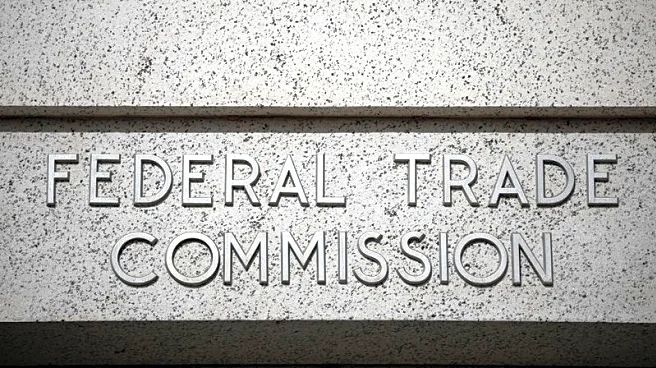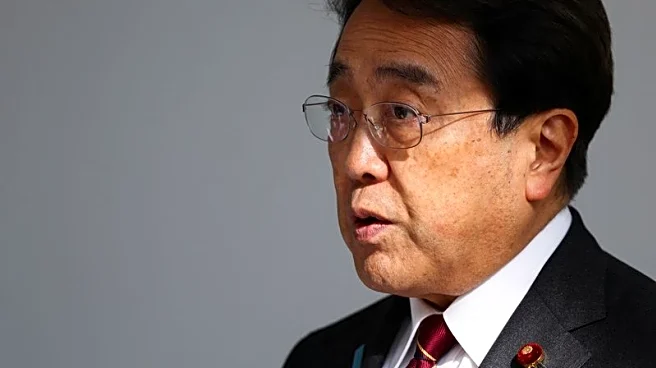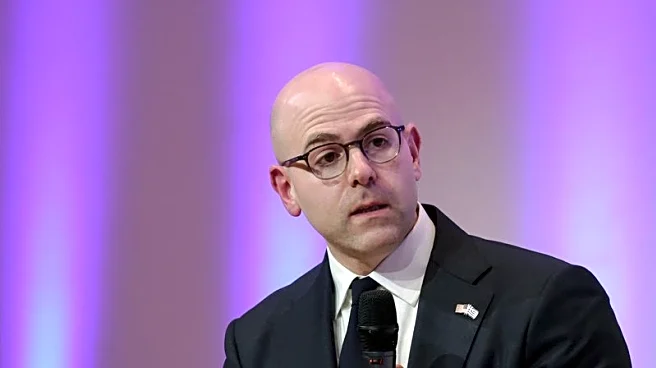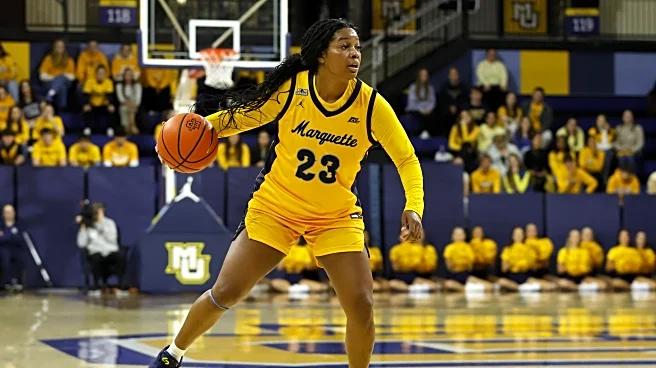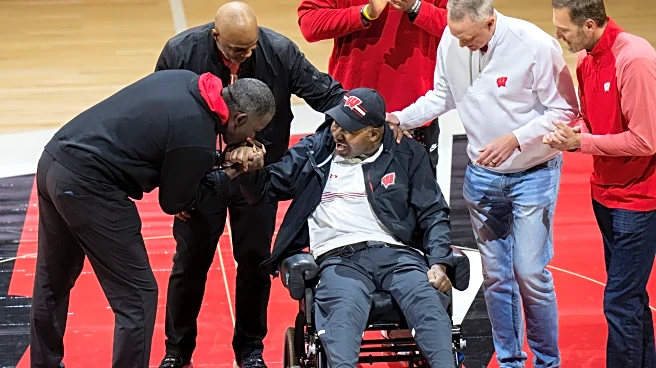What's Happening?
Emily Jones, an ambassador for Just Like Us, shares her personal journey with pronouns in a feature for International Pronouns Day. Jones discusses the complexities and internal struggles associated with pronoun usage, particularly for trans and non-binary
individuals. She highlights the discomfort that can arise from assumed pronouns and the importance of finding pronouns that feel right. Jones recounts her experience of reading 'The Heartbreak Bakery' by A R Capetta, which features a character who does not use pronouns, inspiring her to adopt a similar approach. She now prefers to use 'none' or 'they/them' pronouns, depending on the context, and encourages others to 'try on' different pronouns to find what feels best.
Why It's Important?
The discussion around pronouns is significant as it touches on broader issues of identity and acceptance within society. For many LGBTQIA+ individuals, pronouns are a crucial aspect of their identity and can impact their sense of safety and comfort in various environments. By sharing her story, Jones contributes to the ongoing conversation about gender identity and the need for inclusive language practices. This dialogue is essential for fostering understanding and respect for diverse identities, which can lead to more supportive and inclusive communities.
What's Next?
As awareness around pronoun usage grows, educational initiatives and advocacy efforts are likely to increase, aiming to create more inclusive environments. Organizations like Just Like Us may continue to provide resources and support for individuals exploring their gender identity. Additionally, discussions around pronouns may influence policy changes in educational and workplace settings, promoting inclusivity and respect for all gender identities.
Beyond the Headlines
The movement towards recognizing diverse pronoun preferences reflects broader cultural shifts towards inclusivity and acceptance of non-binary and gender-diverse individuals. This change challenges traditional language structures and encourages society to rethink how language can be used to affirm identity. As more people share their experiences, it may lead to greater empathy and understanding, reducing discrimination and fostering a more inclusive society.





